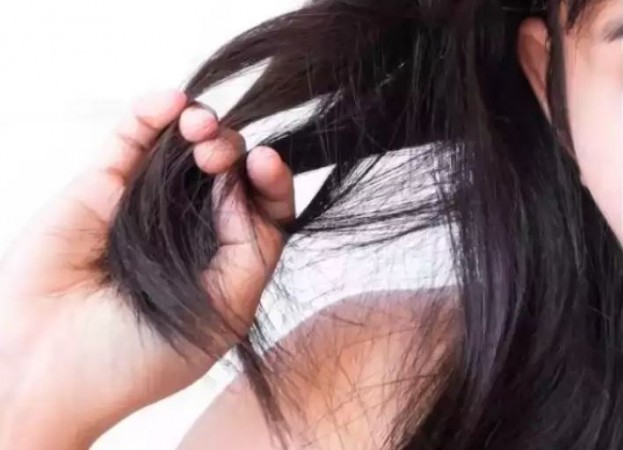
During the summer season, our skin and hair are particularly vulnerable to the harmful effects of dust, pollution, and direct exposure to the sun's rays. While many people take extra care of their skin with various products like sunscreen and regular cleansing, hair care often gets neglected. However, experts emphasize the importance of summer hair care to prevent damage caused by dust, pollution, and UV radiation.
Here are some essential tips for summer hair care:
1. Avoid Excessive Oil Application:
During the summer months, excessive oil application to the hair can lead to a range of issues. While oiling the hair is a traditional practice for nourishment, it can become counterproductive in hot and humid weather.
In hot and humid conditions, excessive oil can attract dust, dirt, and pollutants, leading to scalp issues such as dandruff and itching. Moreover, the heat can cause the oil to become sticky, making it difficult to wash off completely. This can result in clogged pores and follicles, hindering the natural ventilation of the scalp.
To prevent these problems, it's essential to moderate oil application during the summer. Opt for lighter oils such as coconut oil or argan oil, which are easily absorbed and less likely to weigh down the hair. Apply oil sparingly, focusing on the lengths and ends rather than the scalp, to maintain hair health without attracting excessive dirt and grime.
2. Use Anti-Dandruff Shampoo Twice a Week:
Dandruff is a common issue exacerbated by summer weather conditions. Increased humidity and sweating can contribute to the growth of Malassezia, a fungus responsible for dandruff. Using an anti-dandruff shampoo regularly can help control fungal growth, reduce scalp inflammation, and alleviate itching.
Anti-dandruff shampoos contain active ingredients such as zinc pyrithione, ketoconazole, or selenium sulfide, which help eliminate dandruff-causing fungi and reduce flakiness. By using these shampoos twice a week, you can effectively manage dandruff and maintain a healthy scalp environment.
It's important to massage the shampoo gently into the scalp and leave it on for a few minutes before rinsing thoroughly. Avoid using hot water, as it can strip the scalp of natural oils and exacerbate dryness. Additionally, follow up with a moisturizing conditioner to keep the hair soft and hydrated.
3. Limit the Use of Styling Tools:
Excessive use of styling tools such as flat irons, curling wands, and hair dryers can cause heat damage, leading to dryness, breakage, and frizz. During the summer months, when the hair is already exposed to environmental stressors, it's important to minimize heat styling and embrace natural hair textures.
Styling tools generate heat that can weaken the hair shaft and strip it of its natural moisture, making it more susceptible to damage. Prolonged exposure to heat can also lead to protein loss, resulting in brittle and fragile hair strands.
To minimize heat damage, air-dry your hair whenever possible and use heat protectant sprays before using styling tools. When using heat styling tools, opt for lower heat settings and limit the duration of exposure to reduce the risk of damage. Embrace heat-free styling techniques such as braids, buns, or twists to add texture and volume to your hair without compromising its health.
4. Hydrate Your Hair:
Just like your skin, your hair needs adequate hydration to maintain its health and vitality. During the summer months, exposure to sun, saltwater, and chlorine can deplete the hair's moisture levels, leaving it dry, brittle, and prone to breakage.
Moisturizing shampoos and conditioners contain ingredients that help replenish lost moisture and restore the hair's natural hydration balance. Look for products enriched with hydrating agents such as glycerin, hyaluronic acid, or coconut oil to nourish and soften the hair strands.
In addition to regular shampooing and conditioning, incorporate weekly deep conditioning treatments or hair masks into your routine to provide intensive hydration and repair damaged hair. Apply the mask evenly to damp hair, focusing on the mid-lengths and ends, and leave it on for the recommended duration before rinsing thoroughly.
5. Seek Expert Advice:
If you're experiencing persistent hair issues such as excessive hair fall, dandruff, or dryness, it's advisable to seek professional advice from a dermatologist or a trichologist. These experts can assess your hair and scalp condition, identify underlying causes, and recommend personalized treatment options to address your specific concerns.
While home remedies and over-the-counter products may provide temporary relief, they may not always address the root cause of the problem. A dermatologist or trichologist can conduct diagnostic tests, such as scalp examinations or hair analysis, to determine the underlying factors contributing to your hair issues.
Based on the diagnosis, they may prescribe medicated shampoos, topical treatments, or oral medications to target specific scalp conditions or hormonal imbalances. Additionally, they can provide valuable insights into lifestyle changes, dietary modifications, and hair care practices to promote long-term hair health and prevent future problems.
In conclusion, by following these detailed tips for summer hair care, you can effectively protect your hair from damage and maintain its strength, shine, and vitality throughout the summer season and beyond.
Chain smoker should give up smoking at all costs, smoking even one cigarette is so dangerous